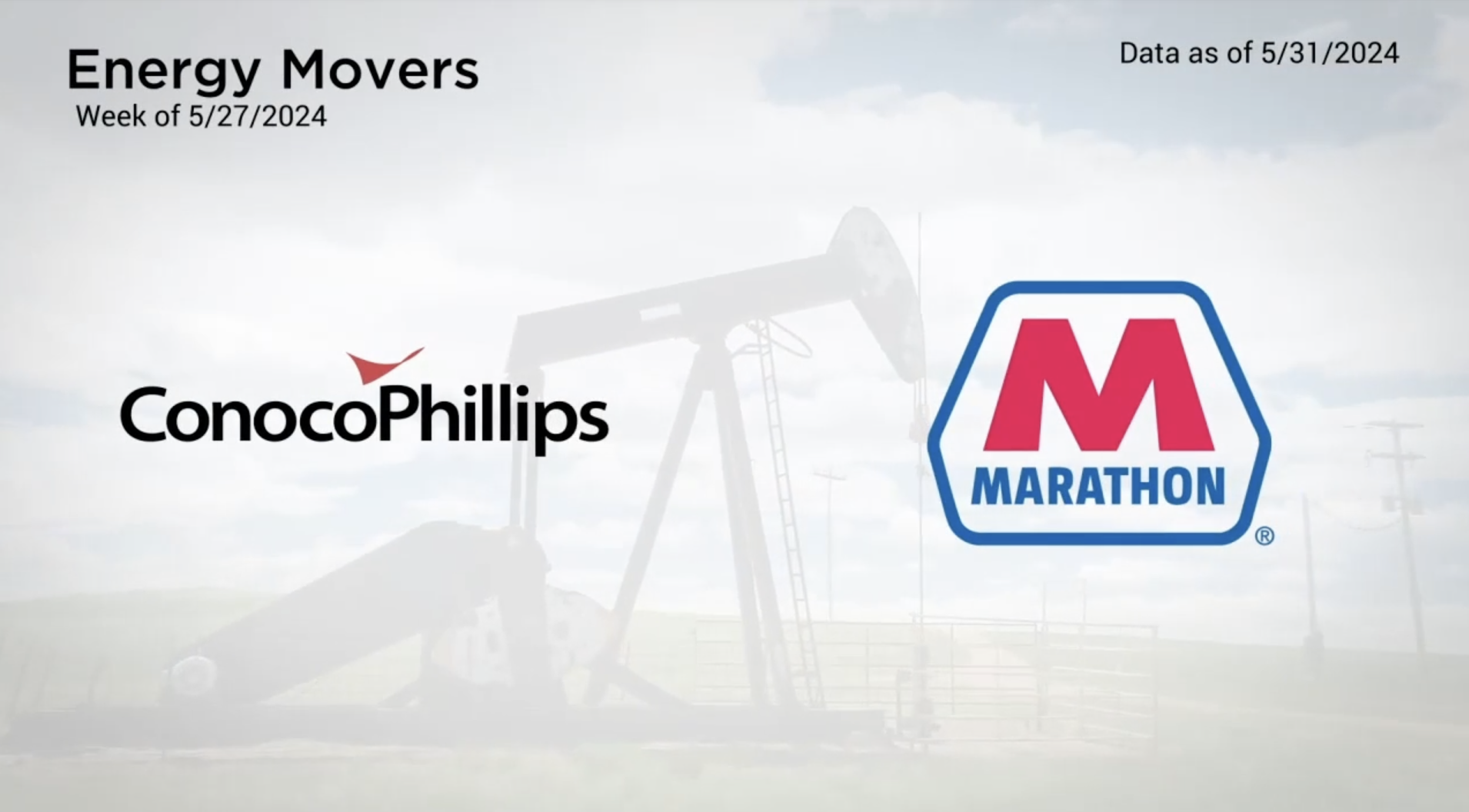Weekly Market Commentary
Markets End Week with Losses Despite S&P 500’s Monthly Gain
Posted on June 7, 2024
The major markets closed the Memorial Holiday shortened trading week with losses across all five indices. That said, despite the losses in the domestic market, the S&P 500 managed to log a solid monthly gain of 4.8%. This stands as the second-best monthly performance for the year.
The Large Cap and Growth segments suffered the most weakness last week. That said, those segments have continued to be the best performing areas of the style boxes year to date.
At the sector level, there was a significant disparity between the winners and losers last week. Energy was the top performer, followed by Real Estate and Utilities. Three other sectors managed to eek out gains making more winners than losers. However, the losses in Information Technology among others pulled down the greater S&P 500.
Energy was stimulated in large part due to the announcement that ConocoPhillips plans to acquire Marathon Oil in an all-stock deal. This sent stock prices higher for Marathon.

Major Markets |
YTD as of 5/30/2024 | ||
| Nasdaq |  |
||
| Dow Jones Industrial |  |
||
| S&P 500 |  |
||
| MSCI World |  |
||
| MSCI EM |  |
||
| Russell 2000 |  |
||
| Bar US Agg Bnd |  |
||
 |
|||
S&P Sectors |
|
|||||
| Comm. Services |  |
|||||
| Cons. Discretionary |  |
|||||
| Cons. Staples |  |
|||||
| Energy |  |
|||||
| Financials |  |
|||||
| Health Care |  |
|||||
| Industrials |  |
|||||
| Info. Technology |  |
|||||
| Materials |  |
|||||
| Real Estate |  |
|||||
| Utilities |  |
|||||
 |
||||||
| Agent/Broker Dealer Use Only | ||||||
In economic news, the Fed released their Beige Book on Wednesday. The book was a sobering update on the state of the economy. Regarding the Labor Market, the Fed said that:
“Employment rose at a slight pace overall. Eight Districts reported negligible to moderate job gains, and the remaining four Districts reported no changes in employment.”
On Prices nationwide,
“Contacts in most Districts noted consumers pushed back against additional price increases, which led to smaller profit margins as input prices rose on average”…and that…”Price growth is expected to continue at a moderate pace in the near term.”
And regarding the overall Economic Activity,
“Overall outlooks grew somewhat more pessimistic amid reports of rising uncertainty and greater downside risks.”
The market sold off after the news hit the street as the market closed right off the lows of the day. Thursday saw further declines before a slight recovery going into the weekend and the close of the month.
https://www.federalreserve.gov/monetarypolicy/files/BeigeBook_20240529.pdf
Concerned about inflation? Check out our Tips to Reduce Risks In Case of Recession.
| The S&P 500® Index is a capitalization index of 500 stock-designed to measure performance of the broad domestic economy through changes in the aggregate market value of stock representing all major industries. https://us.spindices.com/indices/equity/sp-500 The Dow Jones Industrial Average® (The Dow®), is a price-weighted measure of 30 U.S. blue-chip companies. The index covers all industries except transportation and utilities. https://us.spindices.com/indices/equity/dow-jones-industrial-average The NASDAQ Composite Index measures all NASDAQ domestic and international based common type stocks listed on The NASDAQ Stock Market. Today the NASDAQ Composite includes over 2,500 companies, more than most other stock market indexes. Because it is so broad-based, the Composite is one of the most widely followed and quoted major market indexes. https://indexes.nasdaqomx.com/Index/Overview/COMP The MSCI World Index, which is part of The Modern Index Strategy, is a broad global equity benchmark that represents large and mid-cap equity performance across 23 developed markets countries. It covers approximately 85% of the free float-adjusted market capitalization in each country and MSCI World benchmark does not offer exposure to emerging markets. The MSCI Emerging Markets (EM) Index is designed to represent the performance of large- and mid-cap securities in 24 Emerging Markets countries of the Americas, Europe, the Middle East, Africa and Asia. As of December 2017, it had more than 830 constituents and covered approximately 85% of the free float-adjusted market capitalization in each country. https://www.msci.com/ The S&P GSCI Crude Oil index provides investors with a reliable and publicly available benchmark for investment performance in the crude oil market. https://us.spindices.com/indices Companies in the S&P 500 Sector Indices are classified based on the Global Industry Classification Standard (GICS®). https://us.spindices.com/indices |






